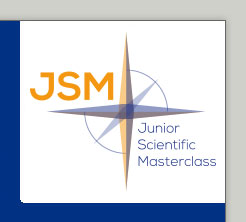Edit researchproject
In this email you'll find a link that you can use to edit the project on the website.
Only researchers that belong to the project can edit their project.
Please use the selectlist below to indicate which researcher you are. When you click the button 'Edit project', an email will be sent to the email of the selected researcher.
Project properties
| Title | Unravelling Vici-like syndrome in the Netherlands |
|---|---|
| Keywords | genotype-phenotype correlation collect clinical information syndrome |
| Researchers |
Dr. D.S. Verbeek Dr. F. Vansenne Drs. J.M. Fock |
| Nature of the research | Cohort study, data-collecting both retrospective and prospective |
| Fields of study | neurology genetics |
| Background / introduction |
|---|
|
Vici syndrome is a genetic multisystem disorder characterized by agenesis of the corpus callosum, hypopigmentation of the eyes and hair, cataracts, cardiomyopathy and combined immunodeficiency. Patiemts exhibit profound intellectual disability. Vici syndrome is very rare, about 50 patients have been described worldwide. Treatment is mainly supportive and most patients die in childhood . Vici syndrome is caused by mutations in the EPG5 gene and is inherited in an autosomal recessive manner. We have identified an unique cohort of 16 Vici-like patients in the Netherlands whom share some features of Vici syndrome, but not all.. All patients come from the same fisherman village and all carry the same homozygous mutation in EPG5 that must have been inherited from a common ancestor. This is called a founder mutation. |
| Research question / problem definition |
|---|
| In what features and why are our patients different compared to the reported Vici syndrome cases? To address this question, we aim to collect all patient data, combine them and compare them to the reported patients with Vici syndrome. Furthermore, we aim to explore the effects of the founder mutation in the EPG5-gene on the mRNA level. Can we identify a genotype-phenotype relation? Is it possible to explain, based on the knowledge of the mutation and effects on the mRNA of EPG5, why our patients have a different phenotype? |
| Workplan |
|---|
|
We are looking for a motivated student who can help us with this project, by: 1) Collect data from the patient files. 2) Collect missing data by contacting the families 3) Organize a family meeting for all patients. If this leads to an article, co-authorship is a possibility. |


